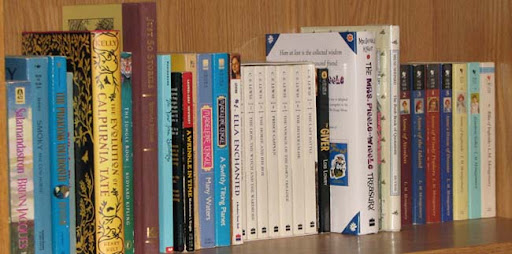Soto, Gary. 1998. Petty Crimes. New York: Harcourt. ISBN: 0152016589.
Summary:
This collection of short stories focuses on Mexican American kids and teens who face a lot of challenges in their day-to-day lives. Their world includes gangs, schoolyard fights, “juvie,” poverty, and crime (as the title suggests). But it also includes (sometimes) supportive friends, loving parents, and the process of self-discovery. Alma’s mother died of cancer, and Alma goes around town collecting her mom’s clothes from the thrift shops where her dad donated them. Norma has to take care of a doll for her social studies class, and both she and the doll get beat up by a school bully. Mario delights in coming up with scams to get money from people, and then he himself is scammed. Jose does odd jobs for people to earn money, and when an elderly man hits his head on the swimming pool, Jose does the right thing and sees a clear difference between himself and his lying, cowardly cousin.
Analysis:
Most of these stories do not have happy endings, which is how life often is. A girl embarks on a spree of shoplifting and stealing, and the end of the story leaves her in a catfight with another girl over a boyfriend. Rudy wants to impress both a girl and his dad in a boxing match, but ends up bruised and defeated. Jose Luis pours love, attention, and money into a pet rooster, and the rooster dies.
Soto does well in the short story format, creating an engaging plot with sufficient character development. He also uses dialogue effectively and realistically, including slang. His settings, mostly in big-city California, appear authentically drawn. There are Spanish words interspersed throughout the text (“chola” is a frequent one), but they are not translated and there is no glossary. Although their meaning adds to the story, a reader can still understand the story without them, and can sometimes figure them out based on context.
Soto makes frequent reference to skin tone and other markers of Hispanic culture. Priscilla is half Mexican, and her peers call her La Guera because of her light skin. She sees herself like a powdered donut: “white on the outside but brown at the core” (3). Jose says he is “too dark to peel” (153). Laura thinks the bold red color of her grandparent’s living room is because they are from Mexico where things are more “vibrant, like tropical flowers” (32). These details add to the stories' authenticity.
Reviews/Awards:
Hispanic Heritage Award for Literature
PEN Center West Book Award
“Some characters (La Guera, a shoplifter, and Mario, a scam artist) are already on their way to becoming juvenile delinquents. Others have chosen a straighter path. Most, however, are caught somewhere in the middle, swimming against a current of violence…. With a rare mix of compassion and irony, Soto (Buried Onions) crystallizes moments signifying the loss of innocence.” Publisher's Weekly
“Filled with both humor and sadness, these slice-of-life narratives portray both self-reflective and self-involved teen characters who learn valuable life lessons from encounters with family, friends, and antagonists.” School Library Journal
Connections:
* For more short stories by Gary Soto, try Baseball in April, which won ALA Best Book for Young Adults.


No comments:
Post a Comment